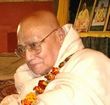What we learn with the aid of our physical organs seeing and hearing with our eyes and ears for instance fall under the category of experience. The second method of learning is deduction.
When we observe an event that's happening, we spontaneously try to deduce the reason behind it. For instance, when we see smoke, we presume it is due to a fire at that place as we know already that there can be no smoke without fire.
The third mode of learning is by studying history. By acquainting ourselves with history we learn of the happenings during past times as history can inform us about the past. Fourth, through oral tradition we learn of places we've never visited from a person who has or who has learned of it from someone else who has. This is the power of the spoken word. Among teachers, this is the preferred mode of dispensing knowledge.
As one cannot guess or deduce without experiencing or watching a happening, learning by guessing or deduction could be categorised under experiencing. On the other hand learning from history could be included in learning through words as history is narrated or written in words and that comes from sound or spoken words. Finally, then, we are left with two modes of learning: Self-experience and spoken words.
Learning by self-experience is not absolute for there is no guarantee that what you are learning is 100 per cent true. This mode of learning has four defects; Incorrect observation (as in the case of a mirage), the inability to learn 100 per cent, uncertainty about facts, and our limited ability to experience (constrained by the sensory limits).
Hence learning by experience is not an absolute mode of learning. So, in order to learn about an absolute Godhead, we need to access a mode of learning that is also absolute. Then, we are left with only one mode of learning that is absolute the spoken word.
The next question is, what kind of spoken word is required to learn about the absolute Godhead? Krishna's devotees are free of the four defects mentioned earlier. Their devotion to the Lord is so pure that the words they utter reveal to us the actual truth about Krishna and His transcendental abode. The knowledge given by these devotees to us is the purest knowledge. Or we can refer to the words spoken by Krishna himself, through the lineage of pure devotees who speak on behalf of Krishna.
To learn about Krishna, the seeker has to first pray for his mercy. Some ask, if the Lord is infinite, and we cannot know Him completely, why bother at all? Why should seekers renounce the world in search of an unachievable objective?
Indeed, Krishna is limitless (infinite), complete and omnipotent and it is impossible for anybody to learn about an infinite, omnipotent Krishna, with one's existing capabilities and penance. But if one is able to do so then Krishna will become within limits (finite). Secondly, Krishna has the capability to learn about himself. So, one can learn about Krishna only when one is blessed with the Lord's grace.
The Bhagavad Gita is the Song of God, the words having been uttered by Krishna himself. The Srimad Bhagavatam is about Krishna. By studying the sacred words of these two works, it is possible to experience at least a part of the infinite. To experience the Absolute should be our goal.
[The author is president, World Vaishnav Association, All India Sree Chaitanya Gaudiya Math and founder, Global Organisation of Krishnachaitanya's Universal Love, GOKUL. Compiled from the author's discourses by Rajendra Mishra, GOKUL. e-mail: gokul_india@sancharnet.in, website: www.gokul.org.uk]
![[BVML Home Page]](../grfx/bml_logo.gif)
